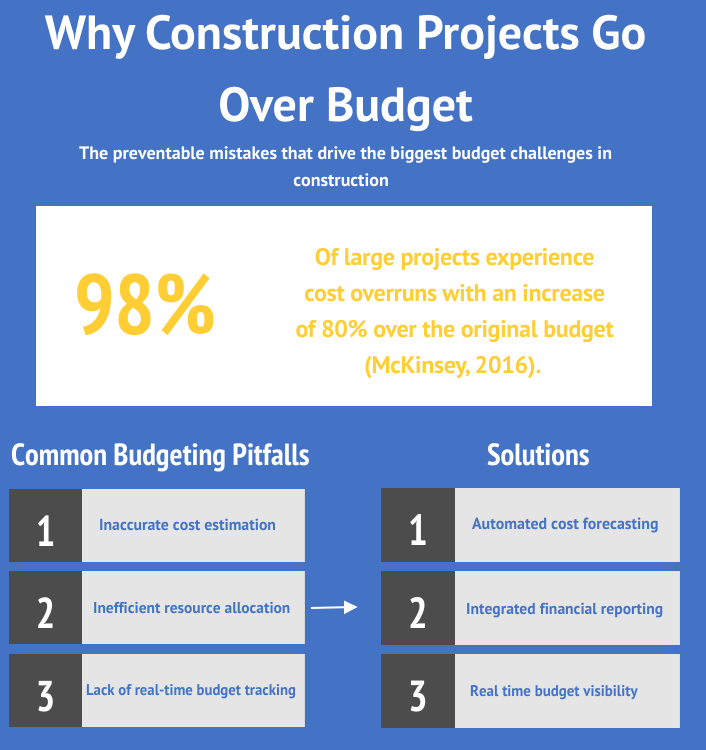Cost overruns are one of the most persistent challenges in construction. According to a study by McKinsey, 98% of megaprojects experience cost overruns, with an average increase of 80% over the original budget (McKinsey, 2016). While unexpected factors like market fluctuations and supply chain disruptions play a role, many budget issues stem from preventable mismanagement.
Common Budgeting Pitfalls
Inaccurate Cost Estimation – Underestimating labor, materials, and unexpected costs leads to financial shortfalls.
Scope Creep – Frequent design changes and additions without proper budgeting inflate costs.
Inefficient Resource Allocation – Poor scheduling of labor and materials results in delays and increased expenses.
Lack of Real-Time Budget Tracking – Without continuous monitoring, minor overspending can escalate into significant financial losses.

How Better Financial Tracking Can Reduce Overspending
Real-Time Budget Visibility – Modern project management tools provide instant cost tracking, allowing teams to compare actual expenses against forecasts.
Automated Cost Forecasting – AI-driven analytics help predict budget risks before they escalate.
Streamlined Change Order Management – Establishing a standardized process ensures cost impacts are evaluated before changes are approved.
Integrated Financial Reporting – Consolidating all project financials in one platform prevents miscommunication and cost discrepancies.
The Bottom Line
Budget overruns aren’t inevitable. With better financial oversight and proactive tracking, construction firms can keep costs under control and projects on schedule.
What’s the biggest budgeting challenge you’ve faced in a project?
Let’s discuss!
Sources: McKinsey & Company. (2016). The Construction Industry’s Productivity Problem. Dodge Data & Analytics. (2022). The Role of Data in Construction Cost Management.








